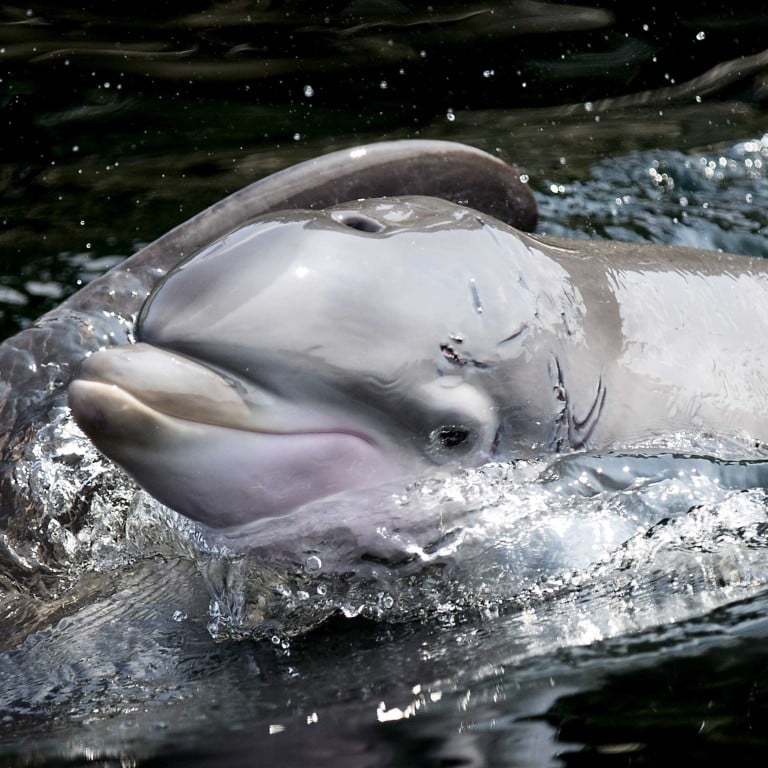
Dolphins in English Channel carrying ‘toxic cocktail’ of chemicals, some banned for decades
- Belgian and French scientists detect high accumulation of industrial fluids and mercury in the animals’ skin and blubber
Bottlenose dolphins in the English Channel harbour a “toxic cocktail” of chemicals, some of which have been banned for decades and which may be harming the rare marine mammals’ health, scientists said Thursday.
Belgian and French scientists said they have detected high accumulations of industrial fluids and mercury in the blubber and skin of dolphins in the Normanno-Breton Gulf, off the northwest coast of France.
Writing in the journal Scientific Reports, the researchers said they measured levels of pollutants similar to those found in dolphins in the Mediterranean Sea, around Florida’s Everglades, off the coast of the Guianas and in Guanabara Bay in Brazil.
Many of the chemicals, including so-called PCBs, have been banned since the 1970s and 1980s but persist in the environment, where they can pass through the food chain. Because the compounds are able to dissolve in oils, they accumulate in fatty tissue. In marine mammals, mothers can pass the chemicals to their calves during pregnancy and lactation.

“We suspect that elevated concentrations of PCBs can alter the reproduction of marine mammals, leading to a decrease of the number of newborns, affecting the renewal of the population,” said Krishna Das, an associate professor at the University of Liege, Belgium.
PCBs, which were once popular as lubricants and hydraulic fluids, can disrupt hormone receptors and affect the immune system, said Das, who co-authored the study.
Frank Mattig, an ornithologist at the University of Oldenburg, Germany, who was not involved in the study, said the findings echo what scientists have discovered in other marine species.
Mattig, who studies the impact of PCBs and mercury on sea birds, said top predators such as dolphins and whales are particularly likely to accumulate high levels of toxins.
China’s baiji dolphin is virtually extinct – here’s how to see it in Hong Kong
It’s unclear what levels of the chemicals are harmful, but other studies show they pose a health risk in high concentrations, he said.
“There’s good reason why they’re banned,” he noted.
The researchers called for greater efforts to eliminate the dangerous chemicals, including safe disposal of stocks and equipment, reducing leakage from landfills and limiting the dredging of PCB-laden rivers and estuaries.

